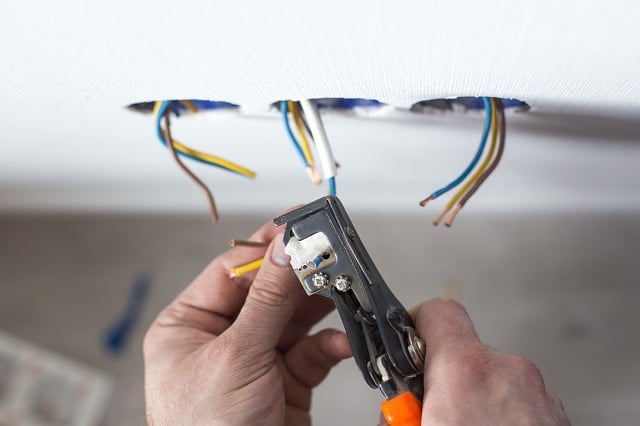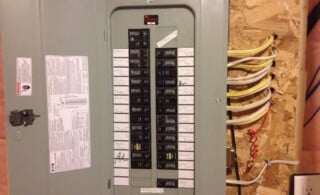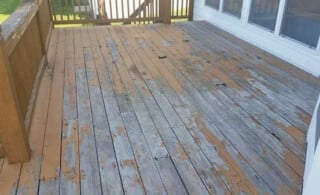
Working with electricity requires care because of the risk of damage, fires, injury, and even death. Homeowners without training in electrical work often tackle jobs they’re unprepared for, which can result in potentially devastating electrical accidents. One of the main problems with novices attempting to finish electrical work is their ignorance of the potential dangers and how to prevent them. Knowing how to perform electrical work correctly and safely is crucial.
It’s best to hire a licensed electrician for any electrical work in your home. Their training prepares them to work with dangerous circuitry while keeping your home up to local codes. Their experience will help avoid inconvenient mistakes, such as connecting a switch with the wrong light fixture or outlet. The cost to hire an electrician is well worth it for the peace of mind that comes with their expertise.
Lights Out
The first step before tackling any electrical work should be to turn the power off at the source and make sure it remains off for the duration of the project. Anytime any work is performed near the service panel, tape switches into the “off” position or lock the panel so the switches cannot be moved. Professionals use a “lock-out” safety procedure to ensure that power remains off during a project. Another safety measure is to attach a note to a service panel that alerts people that the power must remain off. Treating every wire as if it is live is also an important precaution. A non-contact voltage tester will verify that wires do not have current, but it’s always better to be safe than sorry.
Protective Gear for Safety
Even if a job will take just a few moments, it’s important to use the right protective gear. It’s common to begin a task thinking that the work will just take a few minutes to complete but find out once the process is under way that complications could make the work take much longer than anticipated. Goggles are essential for protecting the eyes from electrical arcs, wire trimmings, and debris from insulation. Boots with thick soles should help prevent accidental slips and falls. Wearing gloves will protect the hands during electrical work. Anyone undertaking electrical work in the home needs to be vigilant about their surroundings, too. For instance, water on the floor while working with electricity in a bathroom, kitchen, or laundry room can result in a fatal accident.
Completing the Work to Ensure Future Safety
The goal of any electrical project is to do the job safely and successfully. Outlets must be wired correctly, and all connections need to be secure. Installing ground-fault circuit interrupter outlets in bathrooms, kitchens, and laundry rooms of older homes will enhance safety because these outlets have an internal circuit breaker that will shut off the electricity if a ground fault occurs. After completing electrical work, test it with circuit testers.
A common error for novices working on electrical projects in the home involves estimating the amount of wire needed to complete an outlet. Wire that is tightly stretched can result in weak connections. Fitting too many wires into a junction box can also be a safety risk. Wires must be neatly folded and carefully labeled in each multi-switch box. And never recess junction boxes too far into walls, because this can present a fire hazard if sparks occur.
Electrical Wiring Tips
Using caution and care with electrical wiring in the home should help prevent accidents. Use conduit for exposed wiring to keep the wires protected. Fix outlets if they become loose, since this can be a fire risk. If an electrical fire does occur, a fire extinguisher will be required to douse it: never use water on an electrical fire. Observing and following local codes for electrical wiring is also important. Current codes have requirements for the installation of arc fault interrupters. These mechanisms prevent slow draws of current from occurring, which can present a fire hazard. All electrical work should always be performed according to safety codes and then inspected.
Possessing the skills to complete electrical work in the home can be satisfying and economical. By following safety protocols, homeowners can ensure that their work does not endanger either people or property. If the work is complicated or surpasses a homeowner’s skills, hiring the best local electrician is prudent to ensure that the work is performed correctly, safely and according to code.
- CPSC Launches Program to Prevent Home Electrical Wiring System Fires
- Electrical Safety (PDF)
- Electrical Safety Requirements (PDF)
- Basic Electrical Safety
- Electrical Safety
- Home Wiring Safety Tips
- Electrical Safety: Basic Information
- Electric Safety Tips
- Top Ten Wiring Hazards Threaten Life and Property
- Home Safe Home
- On the Safety Circuit (PDF)
- Electrical Wiring Safety
- How Do Electrical Wiring Faults Lead to Structure Ignitions?
- Electrical Safety in the Home
- Electrical Safety
- Electrical Safety Terms
- Electrical Safety Tips
- Copper Wiring and Cabling: The Safety and Science Behind the Codes
- Fire Prevention: Electricity
- Home Electrical Safety
- Five Electrical Safety Facts Every Homeowner Should Know
- Electric Safety Tips
 Electrical Hazards
Electrical Hazards  Lead Paint Common Sense
Lead Paint Common Sense  Powerful Electrical Upgrades
Powerful Electrical Upgrades  How Do I Get Rid of the Moldy Odor in My Basement?
How Do I Get Rid of the Moldy Odor in My Basement?  Dry Rot: The Invisible Killer
Dry Rot: The Invisible Killer 

Are You Familiar With This Topic? Share Your Experience.